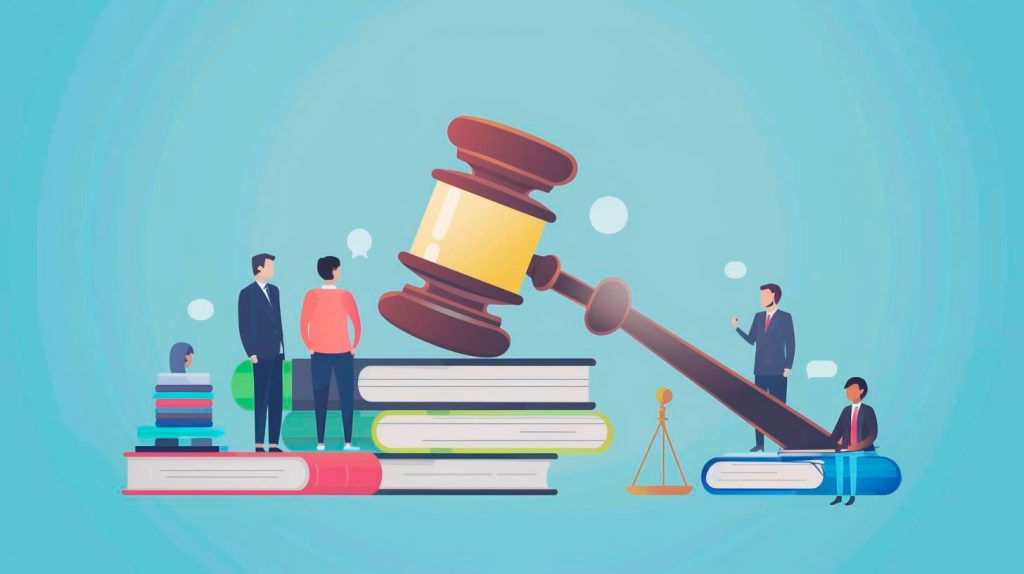
Strategies for Managing Student Loan Debt and Maintaining a Good Credit Score
This blog post will explore some effective strategies for managing student loan debt and keeping your credit score in good standing.
Understanding Your Student Loan Debt
Before you can effectively manage your student loan debt, it’s crucial to have a clear understanding of the terms of your loans. Take the time to review the details of each loan, including the interest rate, monthly payment amount, and repayment timeline. Knowing the specifics of your debt will help you create a personalized plan for repayment and avoid any surprises down the road.
Additionally, consider consolidating your student loans if you have multiple loans with varying interest rates. Consolidating your loans can simplify the repayment process by combining multiple payments into one, potentially lowering your interest rate, and extending the repayment period to make it more manageable.
Creating a Budget and Prioritizing Payments
One of the most important strategies for managing student loan debt is creating a budget that allows you to prioritize your loan payments. Start by outlining your monthly income and expenses to determine how much you can realistically afford to put towards your student loans each month. By making your loan payments a top priority in your budget, you can ensure that you stay on track with your repayment plan.
Consider setting up automatic payments for your student loans to avoid missing any payments and potentially damaging your credit score. Many loan servicers offer discounts for setting up automatic payments, making it a convenient and cost-effective way to stay on top of your debt.
Building and Maintaining Good Credit
In addition to managing your student loan debt, it’s important to focus on building and maintaining a good credit score. Your credit score plays a significant role in your financial health and can impact your ability to secure loans, credit cards, and even housing in the future. By making on-time payments towards your student loans and other debts, you can demonstrate your responsibility as a borrower and improve your credit score over time.
Regularly check your credit report for any errors or discrepancies that could be impacting your score. By monitoring your credit report, you can quickly address any issues and prevent them from negatively affecting your creditworthiness.
Exploring Loan Forgiveness and Repayment Options
If you are struggling to make payments on your student loans, explore loan forgiveness and repayment options that may be available to you. Several federal programs offer loan forgiveness for individuals working in public service, non-profit organizations, or certain fields, such as teaching or healthcare. By taking advantage of these programs, you may be able to reduce or eliminate your student loan debt while also making a positive impact in your community.
Alternatively, consider income-driven repayment plans that base your monthly payment amount on your income and family size. These plans can help make your student loan payments more affordable, allowing you to stay current on your debt while maintaining a good credit score.
Managing student loan debt and maintaining a good credit score may seem like a daunting task, but with careful planning and diligent effort, you can achieve financial stability. By understanding your student loan debt, creating a budget, prioritizing payments, building good credit, and exploring forgiveness and repayment options, you can take control of your financial future and pave the way for a successful financial life.
Remember, seeking the guidance of a qualified financial advisor or lawyer can provide you with personalized advice tailored to your specific situation. With the right strategies in place, you can conquer your student loan debt and build a strong credit history for a bright financial future.
Understanding the Link Between Student Loan Repayment and Creditworthiness
In this article, we will delve into the impact of student loan debt on credit scores and how it can affect your financial future.
The Importance of Student Loan Repayment
Student loan debt is a significant financial burden for many Americans, with over 44 million borrowers owing a total of $1.5 trillion in student loans. Failing to repay your student loans can have serious consequences on your credit score and overall creditworthiness. A poor credit score can make it challenging to qualify for loans, credit cards, or even rent an apartment. It can also impact your ability to secure employment, as many employers now run credit checks on potential hires.
It’s crucial to make timely payments on your student loans to avoid damaging your credit score. Missing payments or defaulting on your loans can stay on your credit report for up to seven years, making it difficult to rebuild your credit. By staying current on your student loan payments, you can improve your credit score over time and demonstrate financial responsibility to lenders and employers.
The Impact on Credit Scores
Your student loan repayment history plays a significant role in determining your credit score. Payment history accounts for 35% of your FICO credit score, the most widely used credit scoring model. Making on-time payments on your student loans can help boost your credit score, while missing payments can lower it significantly.
In addition to payment history, the amount of debt you owe also impacts your credit score. If you have high levels of student loan debt compared to your income, it can negatively affect your creditworthiness. Lenders may view you as a higher credit risk if you have a large amount of student loan debt, making it harder to qualify for new credit.
Tips for Managing Student Loan Debt
Fortunately, there are strategies you can use to manage your student loan debt and improve your creditworthiness. Consider consolidating your loans or enrolling in an income-driven repayment plan to make your monthly payments more manageable. You can also explore options for loan forgiveness or deferment if you are experiencing financial hardship.
Another essential tip is to create a budget and stick to it. By monitoring your spending habits and cutting back on unnecessary expenses, you can free up more money to put towards your student loans. Setting up automatic payments can also help ensure that you never miss a payment, improving your credit score over time.
Understanding the link between student loan repayment and creditworthiness is crucial for young professionals looking to secure their financial future. By making timely payments on your student loans, you can improve your credit score and demonstrate financial responsibility to lenders and employers. Take proactive steps to manage your student loan debt and create a solid financial foundation for the years to come.
How Student Loan Default Can Negatively Affect Credit Scores
Defaulting on your student loan can have serious consequences, including damaging your credit score and making it difficult to secure future loans or credit cards.
Credit Score Implications
Defaulting on your student loan can have a significant negative impact on your credit score. According to data from the Federal Reserve, student loan default rates have been steadily increasing over the years, with over 10% of borrowers defaulting on their loans within three years of entering repayment. When you default on your student loan, it is reported to the credit bureaus, which can significantly lower your credit score.
Your credit score is a three-digit number that lenders use to determine your creditworthiness. A lower credit score can make it harder to qualify for loans, credit cards, or even a mortgage. In fact, a study by the Consumer Financial Protection Bureau found that borrowers with a low credit score due to student loan default were more likely to be denied credit or be charged higher interest rates.
Difficulty Securing Future Loans
Defaulting on your student loan can also make it challenging to secure future loans or credit cards. Lenders may view you as a higher-risk borrower and be hesitant to extend credit to you. This can make it difficult to get approved for a car loan, personal loan, or even a credit card. In addition, if you do qualify for a loan or credit card, you may be charged higher interest rates due to your low credit score.
According to data from the Federal Reserve, borrowers with a history of student loan default are more likely to have trouble securing credit. This can have long-lasting consequences on your financial well-being, making it harder to achieve important milestones such as buying a home or starting a business.
Wage Garnishment
In addition to damaging your credit score and making it difficult to secure credit, defaulting on your student loan can also result in wage garnishment. Wage garnishment is a legal process in which a portion of your paycheck is withheld by your employer to repay your student loan debt. This can be a significant financial burden, as it reduces the amount of money you take home each month.
According to the Department of Education, borrowers who default on their student loans may face wage garnishment as a consequence. Wage garnishment can make it even harder to make ends meet and lead to financial stress. Additionally, having your wages garnished can further damage your credit score, making it even harder to secure credit in the future.
Repayment Options
If you are struggling to repay your student loans, it is important to explore your repayment options before defaulting on your loan. There are a variety of repayment plans available to borrowers, including income-driven repayment plans, deferment, and forbearance. These options can help make your monthly payments more manageable and prevent you from defaulting on your loan.
According to the Department of Education, borrowers who are proactive about managing their student loan debt are less likely to default on their loans. By exploring repayment options and working with your loan servicer, you can avoid the negative consequences of defaulting on your student loan.













If you’re struggling to pay your student loans, consider reaching out to your lender to discuss potential options. Don’t let it negatively impact your credit score.
Having student loans can impact your credit score, but it’s not the only factor. Make sure you’re also paying other bills on time.
I heard having student loans can actually help your credit score. Is that true?
It’s important to monitor your credit score regularly if you have student loans. Any negative impacts can be addressed and hopefully improved over time.
I’m so confused about how student loans affect my credit score. Can someone explain it to me in simple terms?
The relationship between student loans and credit scores is complex. It all depends on how you manage your loans and payments.
I’m currently paying off my student loans, but my credit score seems to be dropping. What gives?
Yo, like, I totally didn’t know student loans could mess up your credit score. Is that, like, for real?
My credit score tanked after I got student loans. Can I do anything about it?
So, what happens if I default on my student loans? Will that wreck my credit score forever?